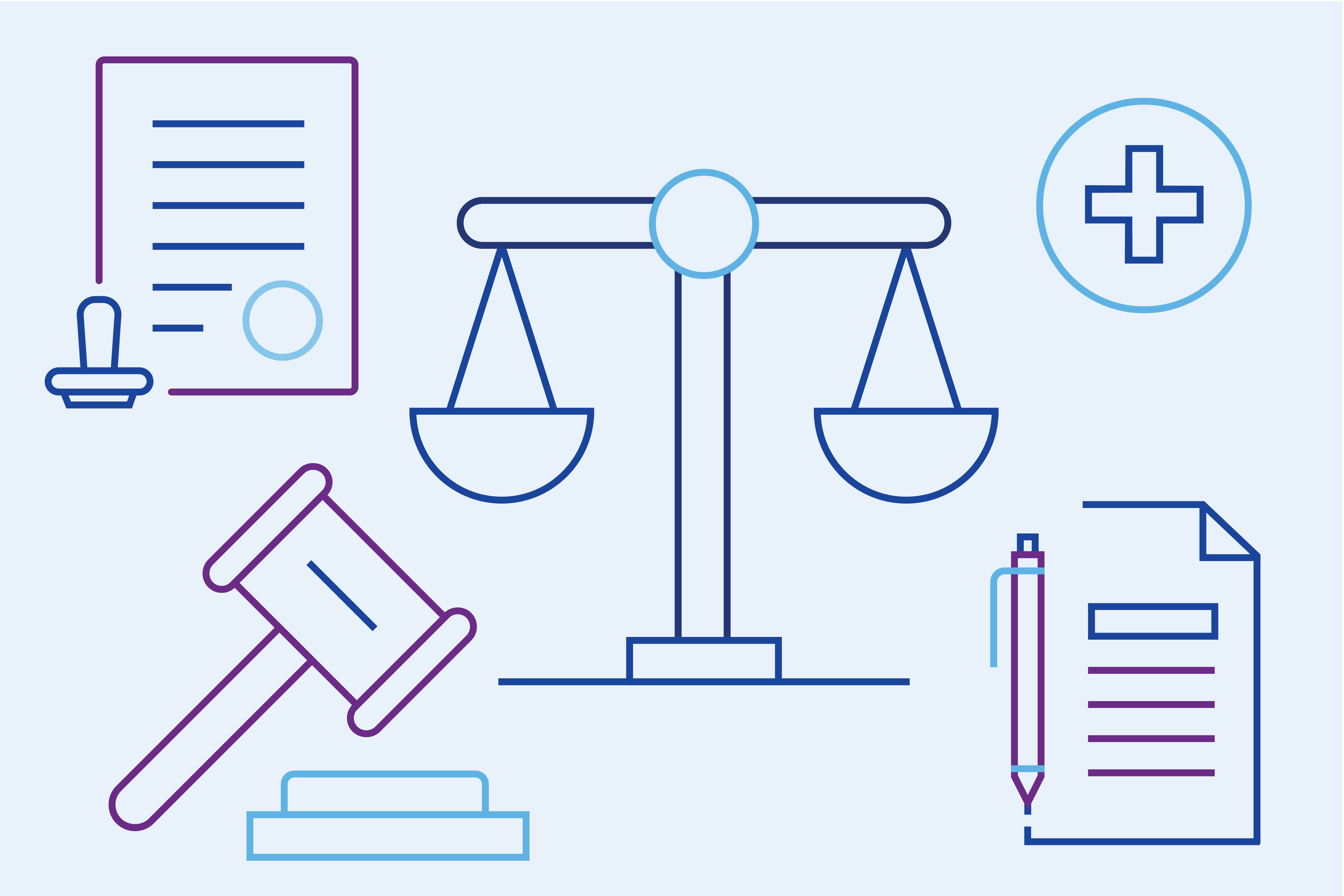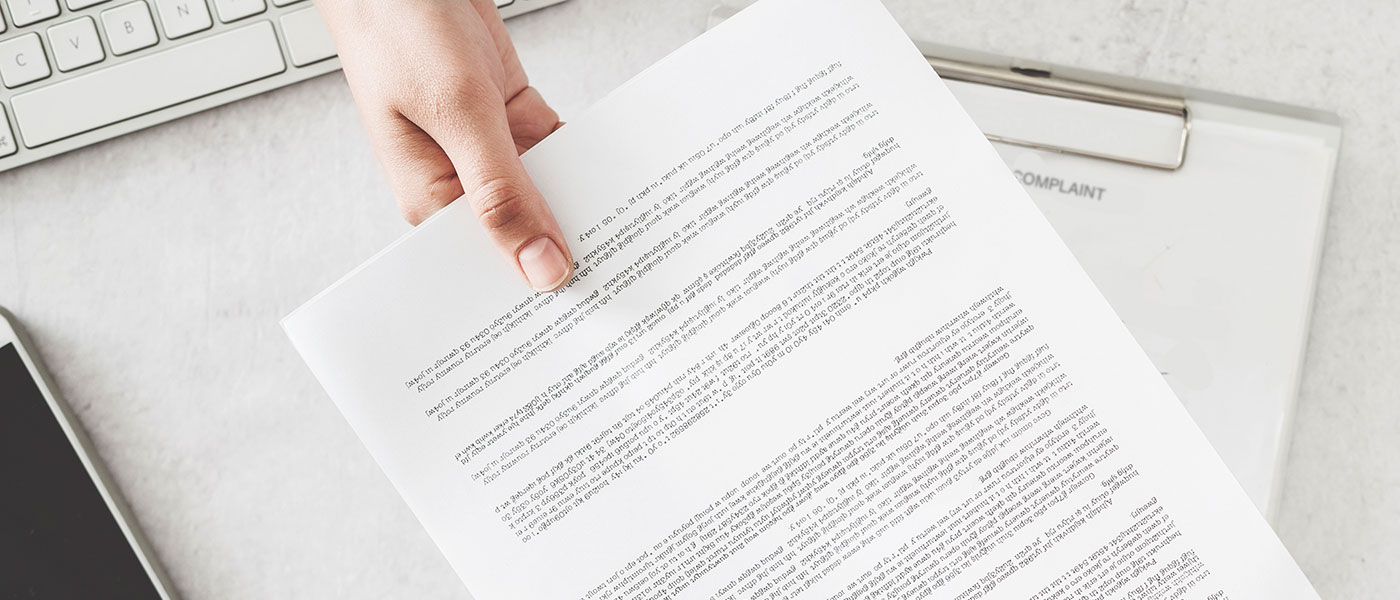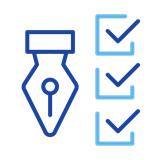Chapter 1
Pharmacist Spotlight:
Defending Your License

Healthcare Providers Service Organization (HPSO), in collaboration with CNA, has published our Pharmacist Professional Liability Exposure Claim Report: 3rd Edition. The report includes statistical data and case scenarios from CNA claim files, along with information on where to access risk management resources designed to help pharmacists reduce their professional liability exposures and improve patient safety.
You may access the complete report, and additional Risk Control Spotlights, at:
www.hpso.com/pharmacistclaimreport.
This Pharmacist Spotlight focuses on analysis and risk recommendations for one of the most significant topics in the report: Defending Your License.
A pharmacist’s license is one’s livelihood, and its protection is paramount. A pharmacist’s practice and conduct are expected to be safe, competent, ethical, and compliant with applicable laws and rules. Each State Board of Pharmacy (the “Board”) serves to protect the public by monitoring licensees and holding them accountable to professional practice requirements. When a complaint is asserted against a pharmacist to the Board, the pharmacist must be equipped with knowledge and resources to adequately defend themselves. Being unprepared may represent the difference between a pharmacist retaining or losing one’s license. This Spotlight provides an overview of the Board’s role in the legal and regulatory system, describes the disciplinary process, and offers helpful recommendations on defending yourself if you were to become the subject of a licensing board complaint.
License Defense Data Comparison of 2013, 2018, and 2023 Datasets
2013
Dataset
2018
Dataset
2023
Dataset
Number of years in dataset
10
5
6
Total number of matters with payment in dataset
200
185
280
Total paid
$737,073
$989,565
$2,142,130
Average defense payment
$3,685
$5,349
$7,650
The 3rd Edition of the HPSO/CNA Pharmacist Liability Claim Report revealed a total of 280 closed license protection matters with defense expense payments in the six-year analysis, representing an average expense of $7,650. The 2023 analysis reveals that the average defense payment for license defense matters has increased 43 percent since the 2018 data- set and has more than doubled since the 2013 dataset. License protection matters include reimbursement for the cost of legal representation to defend the pharmacist during the Board investigation. Therefore, defense payments may increase for several reasons, including escalating legal fees and other defense costs, inflation, and the individual nature of each disciplinary investigation, which may take years to resolve.
The chart above compares the license protection data for the 2013, 2018 and 2023 Pharmacist Claim Report datasets. The average total payment reflects the legal fees and other expenses involved in defending the pharmacist against the Board complaint. Any costs or expenses associated with fines are not included.
Chapter 2
Understanding the Legal System


There are three types of law, the third of which is relevant to licensing board complaints.
Civil Law
Civil law protects the rights of citizens and offers legal remedies. Civil actions typically involve a plaintiff suing a defendant to collect money to compensate for an injury. One example of a civil action is a medical professional liability lawsuit. The outcome of civil cases is determined by the preponderance of evidence in favor of one party with respect to the burden of proof.
Criminal Law
Criminal law involves the statutes and regulations that define criminal conduct. Examples include driving under the influence, theft or assault. Criminal cases are determined by proving guilt beyond a reasonable doubt.
Administrative Law
Administrative law governs the rules and regulations promulgated and enforced by government agencies – such as your State Board of Pharmacy. Administrative cases are determined by the state providing ‘clear and convincing’ evidence of the allegations, although this standard may vary by state.
The State Pharmacy Practice Act
State legislatures pass laws or statutes that govern the practice of pharmacy, generally referred to as a state Pharmacy Practice Act. Pharmacists should familiarize themselves with their Boards of Pharmacy and with their relevant state Pharmacy Practice Act. Your state’s regulatory agency exercises control over the profession’s day-to-day functions. Therefore, understanding governing laws and regulations is a prudent course of action for all licensees. In addition, State Boards of Pharmacy include in their mission to protect public health and act in accordance with the highest standards of ethics.
They are also authorized to:
- Issue and regulate licenses
- Establish and promulgate rules in accordance with applicable state and federal laws
- Process and adjudicate complaints
- Conduct compliance inspections
- Educate their constituency, providing practice and information resources
- Host state Prescription Drug Monitoring Programs
- Enforce rules and regulations pertaining to pharmacy practice by conducting investigations and imposing disciplinary action against a pharmacist, pharmacy, or pharmacy technician, when necessary, and with respect to reports of professional misconduct against a licensee.
State Boards of Pharmacy include in their mission to protect public health and act in accordance with the highest standards of ethics.
Chapter 3
Licensee Rights During the Disciplinary Process
If you are named in a licensing board complaint, the state will not provide nor recommend an attorney; however, it gives you the right to retain an attorney. The state also permits you the opportunity to present evidence to defend yourself during a hearing.

The Disciplinary Process
Complaint Filed
Review of Complaint
Investigation
Board Proceedings
Board Action
Reporting and Enforcements
A board complaint can be filed against a pharmacist, pharmacy, or pharmacy technician by various parties, such as a patient, a patient’s family member, a colleague or an employer. You may or may not know the identity of your accuser, and the complaint can be filed anonymously. In addition, many states require self-reporting of certain violations, such as misdemeanors, felonies, and plea agreements. Involvement in an investigation to the point of resolution takes time. This process is illustrated by the graphic to the right.
Investigative Stage
While the procedures may vary by state, all complaint reports are reviewed, including anonymous submissions. Many, if not all, state Boards are required to review every complaint received to determine if the Board has the jurisdiction or authority to investigate and enforce laws and regulations related to the alleged conduct. If the Board decides to initiate an investigation into a licensee’s conduct, the Board may not be permitted to reveal the complaint details or its source.
Most State Boards of Pharmacy are comprised of practicing pharmacists, as well as other healthcare professionals and members of the public, who may or may not be healthcare professionals.
State Boards of Pharmacy often strive to include members from diverse pharmacy practice settings in order to ensure fair representation and varied perspectives. The Board-appointed investigator will use fact-finding methods, such as participant and witness interviews, documentation and records review, perform drug screens (if impairment is asserted), and compile any pertinent information related to the events and circumstances surrounding the complaint.
During the investigation, the Board investigator may ask you to provide a written statement, explaining your version of the events and activities involving the reported incident. Or, the Board may require you to appear for an interview with the investigator and/or members of the Board at a specific date and time. Never ignore a request from the Board.
If you are contacted during the investigative stage, consult with an attorney before you respond to the Board. You must be cooperative, and respond within the deadline set by the Board, but be aware that anything you share constitutes evidence that may be used against you by a prosecuting attorney and/or the Board.
Pharmacists should not appear at proceedings without representation by legal counsel. Seek guidance from your legal counsel before answering questions from, or making statements to, the Board or the investigator. Your attorney may be able to speak to the investigator, learn more about your matter, and help you navigate the entire process in a constructive direction.
Prosecution Phase
Upon completion of the investigation, the prosecuting attorney or state agency will determine how to proceed.
One option is an informal conference. Although less formal than a hearing, informal conferences are official proceedings. Your attorney should be present with you at all proceedings. During the conference:
If the Board concludes that it has significant evidence against you, the matter may proceed directly to a formal hearing where disciplinary action may be proposed. The hearing is similar to a civil trial. It may take place in a courtroom-like setting before an administrative law judge and hearing panel. The hearing panel may include several Board members, or the entire Board, depending upon the state. A court reporter records the entire proceeding, creating an official transcript.
During the hearing, the following will occur:
- Information is exchanged, known as discovery, and you are entitled to review the documents possessed by the prosecutor.
- Witnesses for and against you may be called to testify.
- You may be questioned and cross-examined.
- When both sides have presented their cases, the hearing is concluded. The outcome of the formal hearing is a ruling by the administrative law judge and the Board.
- The process can take months or even years to fully resolve.
A board complaint can be filed against a pharmacist, pharmacy, or pharmacy technician
by various parties, such as a patient, a patient’s family member, a colleague or an employer.
Allegations
Comprising 41.1 percent of all license defense closed matters with payment, professional conduct allegations are the most frequent allegations asserted against pharmacists. This allegation category includes matters such as failure to comply with pharmacy regulations and unprofessional conduct towards coworkers and/or patients. Collectively, professional conduct, medication management, and scope of practice complaints represent approximately 80 percent of all license defense paid closed matters. See Figure 18 to the right.
License Defense Matters by Primary Allegation Class
Collectively, professional conduct, medication management, and scope of practice complaints represent approximately 80 percent of all license defense paid closed matters.
State Board of Pharmacy Outcomes
While the terminology used to describe the types of disciplinary actions Boards impose may differ between states and jurisdictions, disciplinary actions enforced by all Boards can affect a pharmacist’s ability to practice. The Board’s disciplinary actions can range from no action against the pharmacist, up to and including revocation of the pharmacist’s license to practice. While 30.4 percent of matters in the 2023 dataset resulted in the Board taking no disciplinary action against the pharmacist, 69.6 percent of matters resulted in the Board taking some action against the pharmacist. In 18.9 percent of matters, the pharmacist was placed on probation. In 16.4 percent of matters, the pharmacist received a reprimand. The more serious outcomes included: license suspension (3.9 percent), license revocation (2.9 percent), and license surrender (6.4 percent). See Figure 21 to the right for further detail.
In some cases, the Board may impose multiple disciplinary actions, such as issuing a reprimand coupled with a fine. Depending upon the state in which you practice, most disciplinary outcomes become a permanent matter of public record and are reported to the National Practitioner Data Bank (NPDB). Pharmacists who have experienced adverse disciplinary actions may appeal those decisions. Each state specifies the process and requirements for appealing a Board disciplinary action decision.
Comparison of 2013, 2018, and 2023 Distribution of State Board of Pharmacy Actions
2013
2018
2023
26.5%
Case closed, no action
27.2%
30.4%
16.0%
Probation
16.1%
19.0%
19.5%
Letter of warning or reprimand
19.5%
16.4%
18.0%
CE, fine, or both
23.9%
14.6%
8.0%
Agreement, consent order, or stipulation
3.3%
6.4%
2.0%
Surrender
2.8%
6.4%
9.0%
Suspension
3.9%
3.9%
1.0%
Revocation
3.3%
2.9%
Chapter 4
Risk Management Recommendations
Below are some proactive concepts and behaviors to help prevent a Board complaint, as well as steps to take if you are notified about a complaint related to your professional practice.

Everyday practice
Practicing requirements

Practice within the requirements of your state practice act, in compliance with organizational policies and procedures, and within the national standard of care. If regulatory requirements and organizational scope of practice differ, comply with the most stringent of the applicable regulations or policies. If in doubt, contact your state Board or professional association for clarification.
Documenting assessments

Document your patient observations, communications and actions in an objective, timely, accurate, and professional manner. Never alter a record for any reason. Never add to a record after the fact unless it is imperative for patient care. If it becomes necessary to add information to the record, properly label the delayed entry. However, never add to a record for any reason after a complaint has been asserted. If additional information related to the patient’s care emerges after you become aware that a Board action has been initiated, discuss the need for additional documentation with your manager, your employer’s risk manager, if applicable, and your legal counsel.
Responding concerns

Respond promptly to patient concerns. Every pharmacy should have written policies and procedures for handling and responding to medication errors. Pharmacists should regularly review your organization’s policies and procedures and familiarize themselves with the specific guidance so that the process is clearly understood. For more information, visit ISMP’s article on general rules and strategies on how to approach all patients reporting actual or potential medication errors with transparency and empathy.
Maintening files

Maintain files that may be helpful with respect to your character. Retain copies of letters of recommendation, performance evaluations, thank you letters from patients, awards, records of volunteer work and continuing education certificates.
Contacting your liability insurer

Immediately contact your professional liability insurer if you:
- Become aware of a filed or potential professional liability matter against you.
- Receive a subpoena to testify in a deposition or trial.
- Have any reason to believe that there may be a potential threat to your license to practice.
Refraining from discussing

Refrain from discussing the matter with anyone other than your defense attorney or the claim professionals managing your matter.
Returning calls

Promptly return calls from your defense attorney and insurance professionals. Contact your attorney or designated professional before responding to calls, email messages or requests for documents from any other party.
Providing information

Provide your insurer with as much information as possible when reporting such matters, including current contact information.
Consulting your insurer

Never testify in a deposition without first consulting your insurer or legal counsel.
Retaining all legal documents

Copy and retain all legal documents for your records, including:
- The summons and complaint
- The subpoena
- Attorney letter(s)
- Any other legal documents pertaining to the matter
Immediately contact your professional liability insurer if you become aware of a filed or potential professional liability matter against you.
License Protection Coverage
Professional liability insurance that includes coverage for license protection helps to insure pharmacists against licensing board complaints by:

Reimbursing you up to the applicable limit for your defense of disciplinary charges arising out of a covered incident.

Covering costs associated with a disciplinary inquiry, up to $25,000 annual aggregate.

Covering expenses such as legal representation, lost wages and travel.


